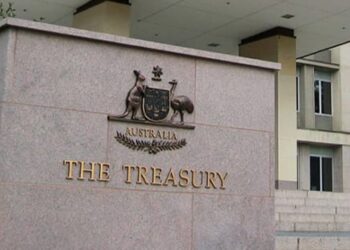Yesterday, ASIC released its opinion that financial advisers that do not meet the criteria set out in s923A of the Corporations Act will no longer be able to describe themselves as “independently-owned”, “non-aligned” or even “non-institutionally-owned”, despite the firm’s ownership structure.
In response, AFA chief executive Phil Kewin issued a statement last night supporting the non-aligned community and expressing concern with the regulator’s interpretation.
“ASIC’s position reflects the tight restriction of the terms contained in Section 923A of the Corporations Act,” Mr Kewin said.
“This is a very restrictive definition that includes a range of factors that in our view do not impact upon what we consider to be independence in the delivery of advice.
“Many advisers have gone to great lengths to establish themselves and their businesses as ‘independent’ and ‘non-aligned’, often at great expense … we do believe that they should be available for more than the current legislation allows.”
Mr Kewin said the AFA would support legislative change on the issue, indicating the association may support efforts underway by the AIOFP and non-aligned licensees to seek repeal of s923A to broaden the definition.
By contrast, FPA chief executive Dante De Gori told ifa that his association supports the current definition contained in the provisions.
“The FPA is a strong advocate for policy that protects consumers and supports clear guidance for industry,” Mr De Gori said.
“It is important to note that the definition of ‘independent’ under s923A of the Corporations Act remains unchanged, and the FPA supports the appropriate use and enforcement of this term to ensure integrity and accountability.
“The media release now provides industry with clarity on what terms can and cannot be used in relation to the legislation.”




All commissions are to be the same now under LIF. How is that different from fees? No incentive other than policy definitions etc to place it one place and not another. This is as it should be. Your point is? Goose.
Wow!…the FPA sure know how to support their fee paying members well !.
How could you possibly justify paying the membership fee to an association that does this and provides answers such as been quoted in this article.The FPA CEO sounds exactly like Kelly O’Dwyer at a press conference…same answers, same lack of justification as to how the consumer will actually be protected and benefit from such draconian and conflicted control. What a disgrace.
After years of making sure we are not product owned or aligned, this is pretty disappointing. I also would have hoped that all Associations would support both institutions and independents. Even if all remuneration conflicts were removed, due to us having an APL we cannot use these terms! If I don’t have an APL, then I dont have PI Insurance. Stalemated and unsupported by ASIC and the Associations.
Associations should NOT support both, they should only support non-aligned true advisers, not bank salespeople that ruined this industry.
Dear ASIC. Please have a look at the conflicted remuneration register of it’s Chairman to see if fees received ( and in-turn remuneration) via the Professional Partner program are disclosed. Any practicing adviser sitting on the FPA or AFA board should fully disclose these related payments in their FSG and remuneration registers. The FPA getting a payment from a Fund Manager and being on the board of the FPA/AFA has the potential to conflict with the advice provided. Does it not ?
It’s time we bring out into the open the conflicted payments that the FPA receives. There was a time I would of been angry at airing our dirty washing out in the open. However, for the good of the public and if advisers want to reduce red tape we must all act, and act as one.
Fact: FPA get payments from Product Manufacturers via Professional Partner Program. Fact: Members don’t pay the same fees and membership fees are dependent on your dealer group. Fact: Advisers aligned with AMP and the Banks pay lower fees than other FPA members. Fact: Dante’s salary is linked to membership fees…….Pretty clear what stance the FPA is going to take on this matter and I question the validity of their policy direction. They are not the professional association advisers want.
My God, I didn’t know a few of those things. Sounds like a real rat nest. How DARE the FPA behave like this and have a structure and under-the-counter- culture that makes a mockery of what they are supposed to support in the client-facing world, namely ‘Client best Interest’ and ‘transparency’? Where is Dante De Gori’s integrity and that of his supposed ‘professional organization’? Disgusting.
Having just paid membership fees that were 10% more expensive than my AMP/Bank owned colleges and also knowing that the FPA just got a cheque from these same places to the tune of many hundreds of thousands of dollars via the professional partner program I am not happy with the FPA position on this matter. It is clear there view is conflicted, corrupt, unethical and inappropriate. Here is an opportunity to give the IFA market an advantage but they’ve bowed down to their puppet masters. Please simply send an email to the FPA stating that times have changed and legislation should also change.
As we saw with the LIF, neither the AFA or FPA are in any way independent and might as well be institutionally owned (or should we just say are!) Advisers should be encouraged to to be independent and not aligned as this is the best thing for the customer. But what we are seeing is advisers who want to be independent and not aligned being driven under a bus by the FSC, AFA, FPA, Instos and ASIC. They might as well all just come out and say “go work for a bank and be done with it”!
I think the FPA management need to check with the members as to their views on this attack on non-aligned and independently owned licensees. We have had our own licence for 18 years and fall into this category. It is not acceptable for Greg Medcraft to again be pushing legislation interpretations juts because he doesn’t like financial planners. He already has a bad record in this area.
I am an FPA member and I am absolutely shocked and dismayed to hear Dante say “his association supports the current definition”. I was sceptical of the ongoing allegations by others that FPA management was in the pocket of institutions. But when Dante comes out and says he supports a policy that harms consumers, harms non institutional advisers, and provides great benefit to institutional advisers, you really have to wonder.
If you are shocked by that your really need to read more IFA. This column has been pointing out the FPA’s conflicts for ages!!!
Too much of ASIC’s policy these days seems to be driven by Medcraft’s extreme personal bias against financial planners. About time the govt got rid of their rogue employee. He is ultimately harming consumers. Thank goodness his mate Malley’s latest venture seems to be imploding, in spite of Medcraft’s best efforts to promote it. If Medcraft had his way all Australians would end up buying leveraged residential property in SMSFs.
So what will happen when Life insurance commissions are reduced to 60% and 20% across the board. This will mean no planner will favour an insurer over another for monetary purposes and thus the non-aligned or independent title would need to be reviewed?? I currently have a wide choice of insurers and can align a product that suits a client individually, previously working at a bank this wasn’t possible. I find it insulting I cannot advertise this benefit without being in breach!!
times have changed and so must legislation.
You are talking far too much common sense here for the tax payer funded govt clerks that control our once great industry (or life coy execs) to appreciate or understand.
FPA members need to let Mr De Gori know what they think of his position on this. I strongly suspect it is not reflective of the membership base and suggest that De Gori is little more than a mouthpiece for his institutional masters……
Well, best example I’ve seen in a while of stating the obvious!
There’s been plenty of comments on here recently about how the FPA is in the pocket of the large institutions and this statement from the FPA seems to confirm it.
How does ‘non-aligned’ be deemed to mean the same thing as ‘independent’? What does ‘non-institutionally owned’ convey apart from the fact that the adviser or AFSL doesnt have any ownership involvement with a bank, fund manager or insurance company?
ASIC, the Banks and now it seems the FPA are hell-bent on removing any advisers that are not part of the Banks, the Union Super Fund advice arms (because they are so independent of their masters) or who dont take commissions from insurance or legacy business.
Does the FPA’s acceptance of this grotesque ASIC interpretation of the term “non-aligned” indicate that they are catspaws of the banks and other large institutions?
AFA=Insurance=Commissions=not independent. No wonder they are against it